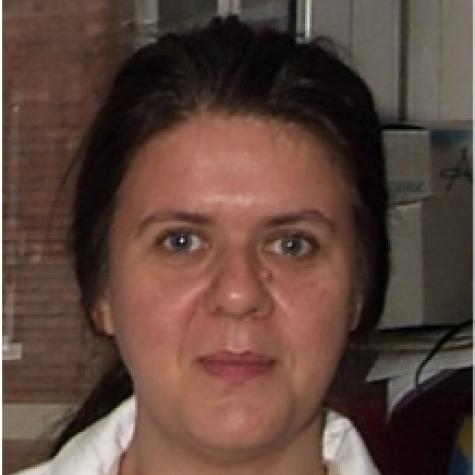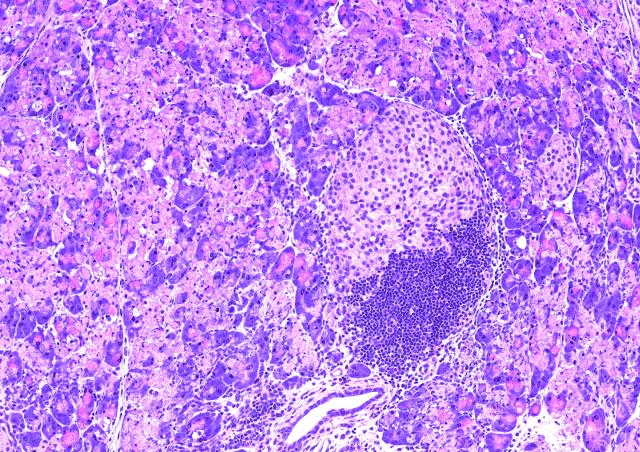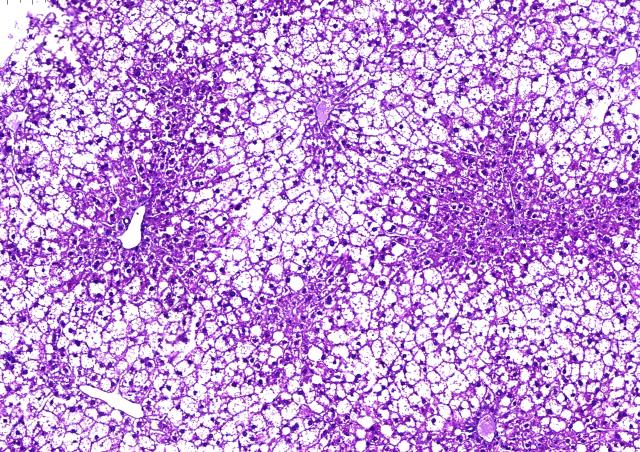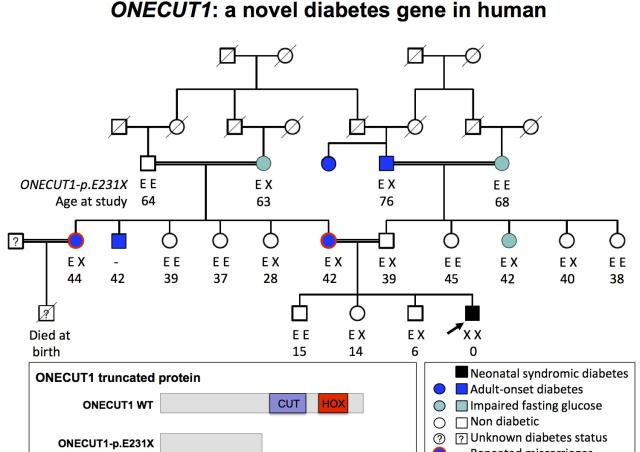The lab focuses is on interactions between immune cells and the islet of Langerhans in type 1 diabetes: 1- the role of local islet factors, in particular of costimulation T cell signals, in immune tolerance and its failure in diabetes; 2- the identification of major T lymphocyte epitopes specific to preproinsulin, a major autoantigen in diabetes development; 3- the development of preclinical models to develop new strategies in the diagnosis and treatment of type 1 diabetes; 4- the development of immunotherapy in human type 1 diabetes.
Members of the project
Our Project
We have demonstrated the central role of insulin-secreting cells in the failure of immune tolerance that leads to type 1 diabetes, and further the key role of preproinsulin as a major autoantigen in NOD mice that were deficient in the expression of either the insulin 1 or the insulin 2 gene (3). Along the same line, we have characterized insulin epitopes recognized by T lymphocytes and have shown in the mouse that the expression of insulin in the thymus controls the repertoire of T lymphocytes that are selected in the periphery (8). In Type 1 diabetes patients, we have characterized insulin epitopes that are recognized by CD4+ and CD8+ T lymphocytes along the diabetes process (7; 6; 4). The present goal is to develop new diagnostic tools and vaccination strategies in the treatment of type 1 diabetes. Along this line, we have developed a new preclinical model of type 1 diabetes by generating humanized mouse that lack the expression of murine class I and class II major histocompatibility complex and insulin genes and express human HLA-A*0201, HLA-DQ8, which are genetic predisposing factors for the disease, and human insulin (hINS) as autoantigen (1). Finally, the role of T cell costimulation is studied in NOD mice that lack the expression of either ICOS or its ligand. ICOS-/- and ICOSL-/- NOD mice are protected from diabetes, but develop an autoimmune disease that affects neural and muscular cells, pointing to local T cell interactions within the islet environment as a key factor in immune tolerance (5, 2).


Selected publications
Latest preprint: Differential action of TIGIT on islet and peripheral nerve autoimmunity in the NOD mouse
by Chantal Bécourt, Sandrine Luce, Ute C. Rogner, Christian Boitard
bioRxiv 2023.11.24.568543; doi: https://doi.org/10.1101/2023.11.24.568543
1: Luce S, Guinoiseau S, Gadault A, Letourneur F, Nitschke P, Bras M, Vidaud M, Charneau P, Larger E, Colli ML, Eizirik DL, Lemonnier F, Boitard C. A Humanized Mouse Strain That Develops Spontaneously Immune-Mediated Diabetes. Front Immunol. 2021 Oct 14;12:748679. doi: 10.3389/fimmu.2021.748679. PMID: 34721418; PMCID: PMC8551915.
2: Van Rampelbergh J, Achenbach P, Leslie RD, Ali MA, Dayan C, Keymeulen B, Owen KR, Kindermans M, Parmentier F, Carlier V, Ahangarani RR, Gebruers E, Bovy N, Vanderelst L, Van Mechelen M, Vandepapelière P, Boitard C. First-in-human, double-blind, randomized phase 1b study of peptide immunotherapy IMCY-0098 in new-onset type 1 diabetes. BMC Med. 2023 May 24;21(1):190. doi: 10.1186/s12916-023-02900-z. PMID: 37226224; PMCID: PMC10210318.
3: Bourdenet G, Pileyre B, Drouot L, Martinet J, Bécourt C, Carrette M, Riou G, Bergua C, Jaworski T, Chan P, Jean L, Fréret M, Cosette P, Boitard C, Abad C,
Boyer O. Icos gene disruption in non-obese diabetic mice elicits myositis associated with anti-troponin T3 autoantibodies. Neuropathol Appl Neurobiol.
2023 Feb;49(1):e12889. doi: 10.1111/nan.12889. PMID: 36751013.
4: Houeiss P, Boitard C, Luce S. Preclinical Models to Evaluate the Human Response to Autoantigen and Antigen-Specific Immunotherapy in Human Type 1
Diabetes. Front Endocrinol (Lausanne). 2022 Apr 13;13:883000. doi: 10.3389/fendo.2022.883000. PMID: 35498419; PMCID: PMC9044628.
5: Luce S, Guinoiseau S, Gadault A, Letourneur F, Blondeau B, Nitschke P, Pasmant E, Vidaud M, Lemonnier F, Boitard C. Humanized Mouse Model to Study Type 1 Diabetes. Diabetes. 2018 Sep;67(9):1816-1829. doi: 10.2337/db18-0202. Epub 2018 Jul 2. PMID: 29967002.
6: Briet C, Bourdenet G, Rogner UC, Becourt C, Tardivel I, Drouot L, Arnoult C, do Rego JC, Prevot N, Massaad C, Boyer O, Boitard C. The Spontaneous Autoimmune Neuromyopathy in ICOSL<sup>-/-</sup> NOD Mice Is CD4<sup>+</sup> T-Cell and Interferon-γ Dependent. Front Immunol. 2017 Mar 31;8:287. doi: 10.3389/fimmu.2017.00287. PMID: 28424681; PMCID: PMC5371727.














